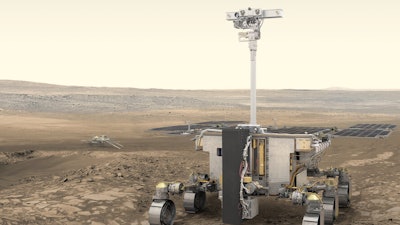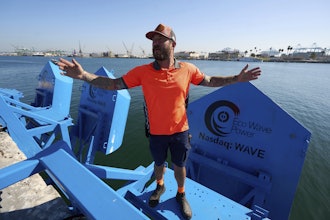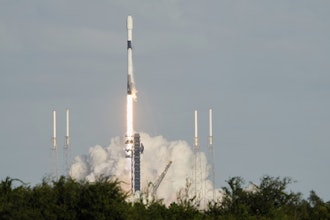
BERLIN (AP) — The European Space Agency and Russia's Roscosmos said Thursday they are postponing a planned joint mission to Mars until 2022, in part due to travel restrictions resulting from the new coronavirus outbreak
The ExoMars mission was due to launch this year but concerns about possible technical problems had already prompted both agencies to discuss the delay.
“We want to make ourselves 100% sure of a successful mission,” European Space Agency Director General Jan Woerner said in a statement. ”We cannot allow ourselves any margin of error. More verification activities will ensure a safe trip and the best scientific results on Mars."
Dmitry Rogozin, the head of Roscosmos, said the delay was primarily due to technical problems, compounded by the coronavirus outbreak, "which left our experts practically no possibility to proceed with travels to partner industries.”
The mission's goal is to put a rover on the red planet to help determine whether there has ever been life on Mars. Scientists hope the rover, packed with high-tech instruments and named after British chemist Rosalind Franklin, will be able to dig for biological signatures of life below the martian surface and also provide further insights into the planet's history of water.
The postponement is another setback for the ExoMars program after the 2016 launch of an orbiter and a test lander. The Trace Gas Orbiter was successfully deployed, but the Schiaparelli lander malfunctioned and crashed on the surface of Mars, highlighting the difficulty of putting a probe on the planet.
So far, the United States is the only country to successfully land a functioning probe on Mars. NASA's Curiosity and InSight landers are still in operation on the planet.
Three other Mars missions are planned for this summer. The United States is launching a lander, China has a lander-orbiter combo, and the United Arab Emirates is sending an orbiter.
Spacecraft can only be launched to Mars every two years, to take advantage of the best possible lineup between Earth and its neighboring planet.
NASA’s science mission chief, Thomas Zurbuchen, said ESA and Roscosmos made a “tough decision” in delaying the ExoMars mission.
“Launching & safely landing a spacecraft on Mars are extremely demanding and require many technologies & systems to function perfectly,” he wrote on Twitter.






















